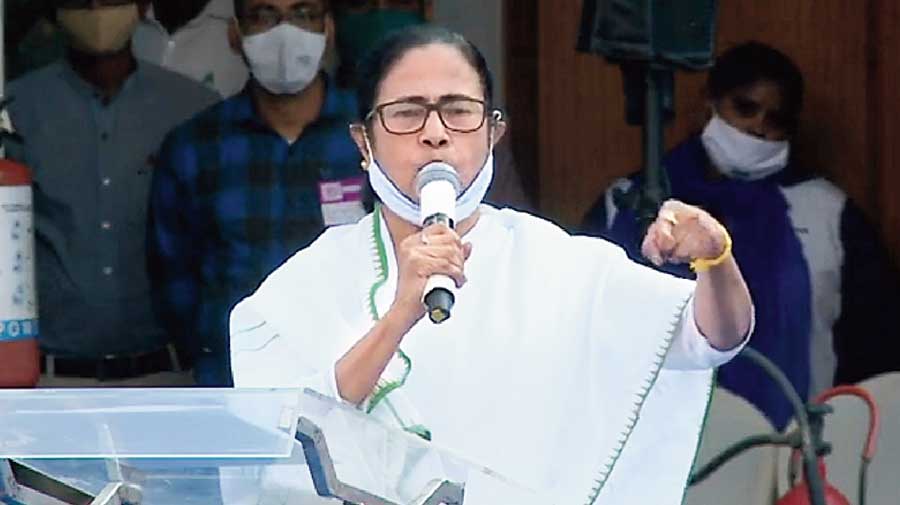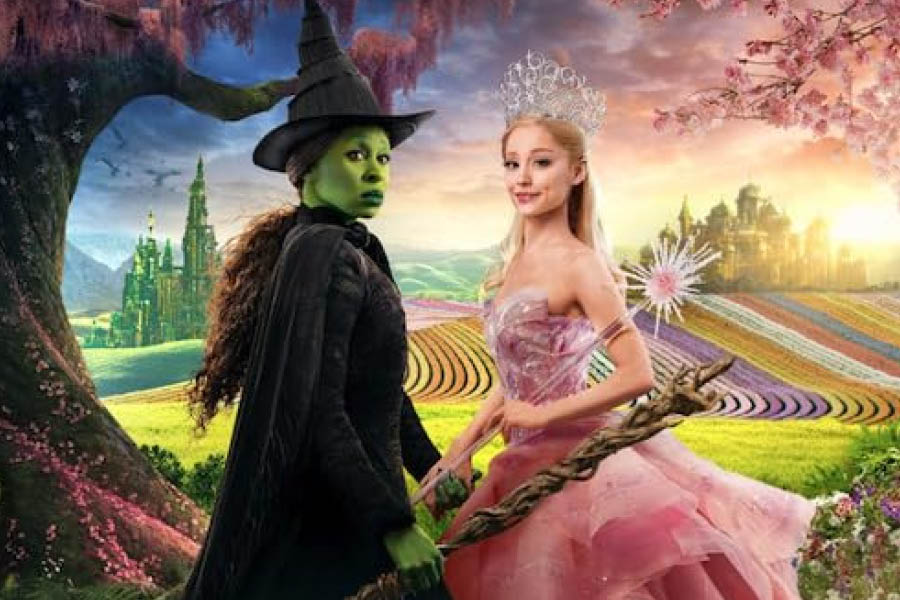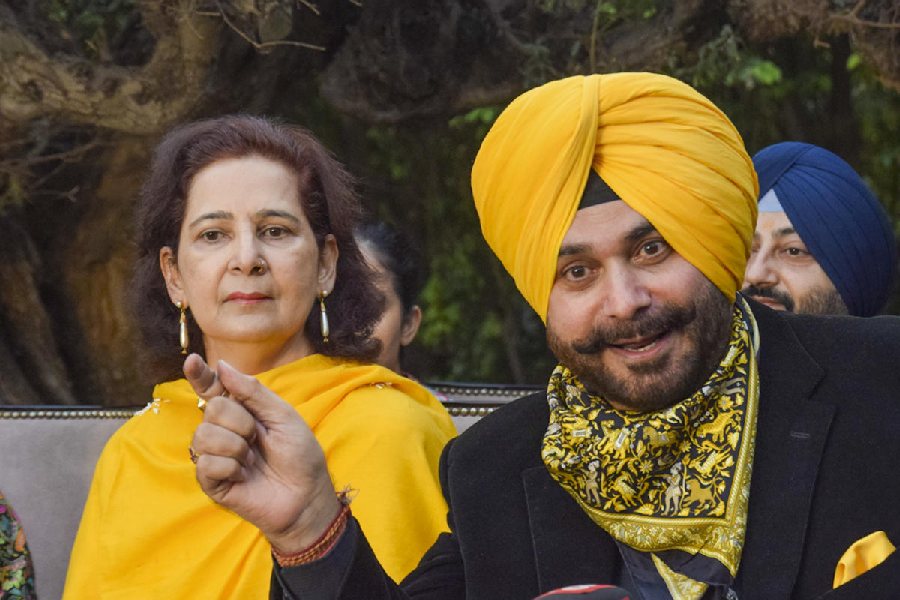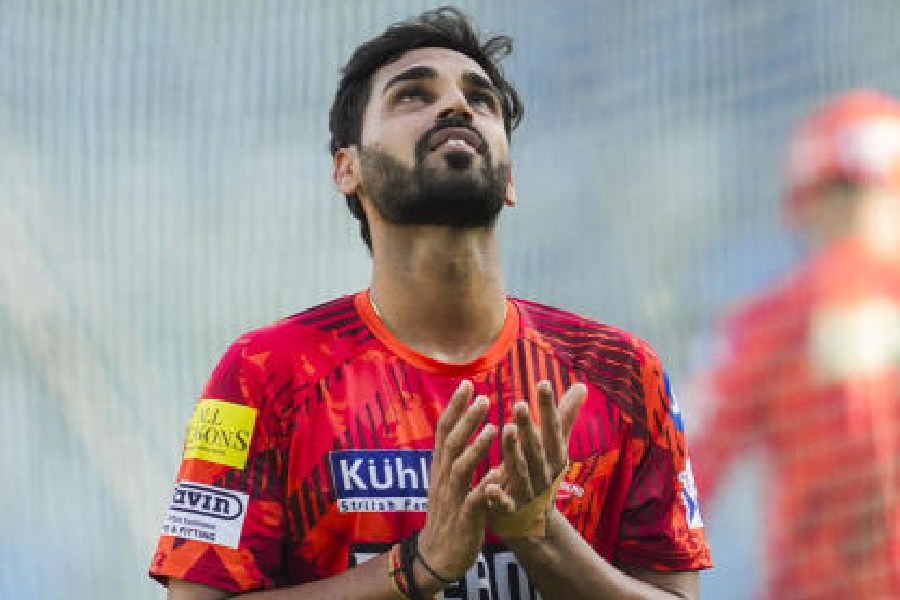Mamata Banerjee on Thursday mounted an aggressive counteroffensive against Amit Shah, calling him out on personal attacks, accusing him of craving power in Bengal and advising basic courtesy as the Union home minister.
The Bengal chief minister questioned Shah and other BJP leaders relentlessly focusing their attacks on the alleged corruption by her and nephew, Trinamul Congress’s heir-apparent Abhishek Banerjee. She turned the tables with a question on the source of the wealth — which grew, on record, exponentially after the BJP came to power at the Centre — of Union home minister’s son Jay Shah.
“Only bhatija-bua (nephew-aunt), all the time. We are very bad, because we are from Bengal. What about your son? How did he make that kind of money? Respond to that first,” said Mamata to loud cheers from thousands in the audience, comprising civil society members, self-help groups and NGOs, at the Uttirna amphitheatre in Alipore here.
Responding to Shah’s claims of the Centre allocating funds for the state, which her government allegedly misappropriates, the Trinamul chief said the money in question was not from the Prime Minister’s pocket, to begin with.
“The audacious claims that Modiji gave money, and Mamataji ate it all up. Did Modiji give it from his pocket? It’s the people’s money, taxpayers’ funds, channelled from a government to another government…,” said a visibly outraged chief minister.
“Today, again, he said, we are all bhroshtachari (corrupt)…. Then, what are you? Dushtachari (Wicked)? All of us are bhroshtachari, durnitiporayon (corrupt)? The mother of the thief has the loudest voice…. I heard him (Shah). Phuchka khabar khawmota nei, phulko luchi khabey (They lack the ability to handle even the basics, yet they aspire for glory)… with their feet on the throats of farmers,” she added. “I ate everything up? You have to prove it. If you cannot, you should resign.”
Picking up from where Prime Minister Narendra Modi had left off on Sunday, with a football reference to drive home a political message, Mamata threw a challenge at him.
“The khyala (game) isn’t that easy…. Hoye jaak, ekta khyala. Gonotontreyr khyala, porikkhar khyala, rajneetir khyala (Let’s have it then, a game. A game of democracy, a game of trial, a game of politics)? Want it at the Brigade Parade Grounds?” she asked.
“On one side, there will be your team, including the Left and the Congress. On the other side, Trinamul Congress will stand alone. I will be the goalkeeper. I will do nothing else. I will see how many goals you can score past me. Who wins this khyala,” she added.
Mamata then coached the Union home minister on basics of civility.
“I say this with sadness. Because if I don’t, they will mistakenly assume I am weak. Civility cannot be one-sided…. The things he said here, his body language, the ugliness of the language, and such monstrous mindset,” she said.
“I say this clearly, it does not behove a Union home minister…. I am telling you clearly, in language you understand. You can abuse me, but you cannot ignore me, this you must understand….,” she added.
The chief minister also criticised Modi over his andolanjeevi jibe at the farmers’ movement, lambasting his government for the way it had been treating farmers and those opposed to the citizenship matrix.
“Abusing the andolankari (agitator) as andolanjeevi (those making a living off agitations)? I am the daughter of many an andolan (movement). I am a street-fighter even today. That is my biggest identity, my biggest pride… inside or outside a government. I was, am and will remain with the people. Till the very end,” said Mamata.
“Again, he has come here to make his CAA-cooh noises. There will be not a tnyaphoo (peep) here. The NPR, the NRC, the CAA, not one of them will happen here,” she added.
The chief minister then urged the civil society to come forward and join her fight, underscoring why it was important to save what Bengal stands for.
“With folded hands, I seek your support. I ask all of you to join this fight to save Bengal. Protect it from riots. Guard its peace. For the sake of development, of students and youth, of the honour of mothers and sisters, of farmers and workers, of culture, of religion, of civilisation itself, and of yourselves,” she said.











